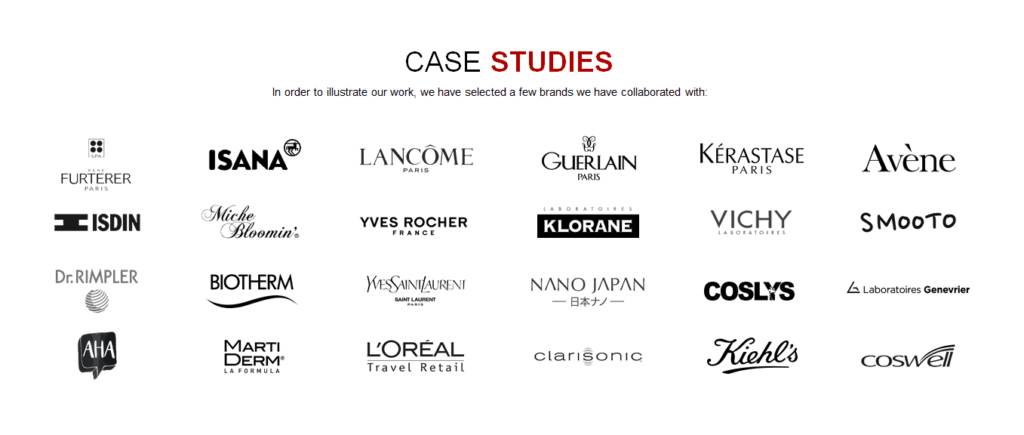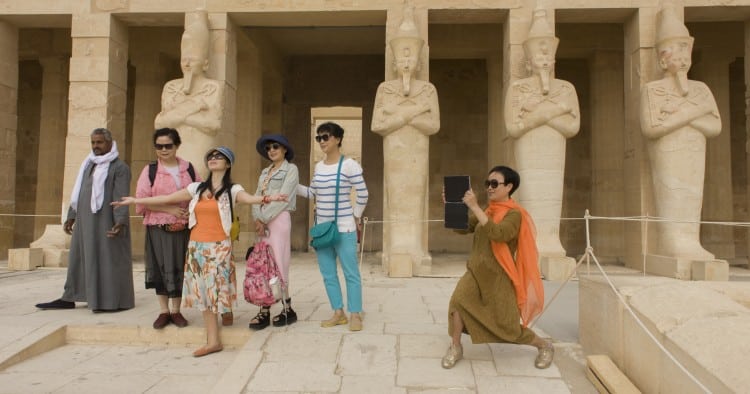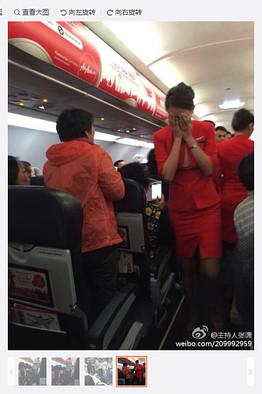The camping and glamping market in China
The camping and glamping market in China has been rapidly expanding in recent years, as more and more Chinese consumers seek out unique and immersive outdoor experiences. With its vast and varied landscape, China offers a wealth of opportunities for camping and glamping, from rugged mountain ranges to scenic lakeshores and everything in between.
As a result, the market has attracted a growing number of domestic and international players, all vying to capture a share of this lucrative and fast-growing industry.
In this context, understanding the trends and dynamics shaping the camping and glamping market in China is essential for anyone looking to enter or expand in this exciting and dynamic sector.
Tents and glamping remain popular
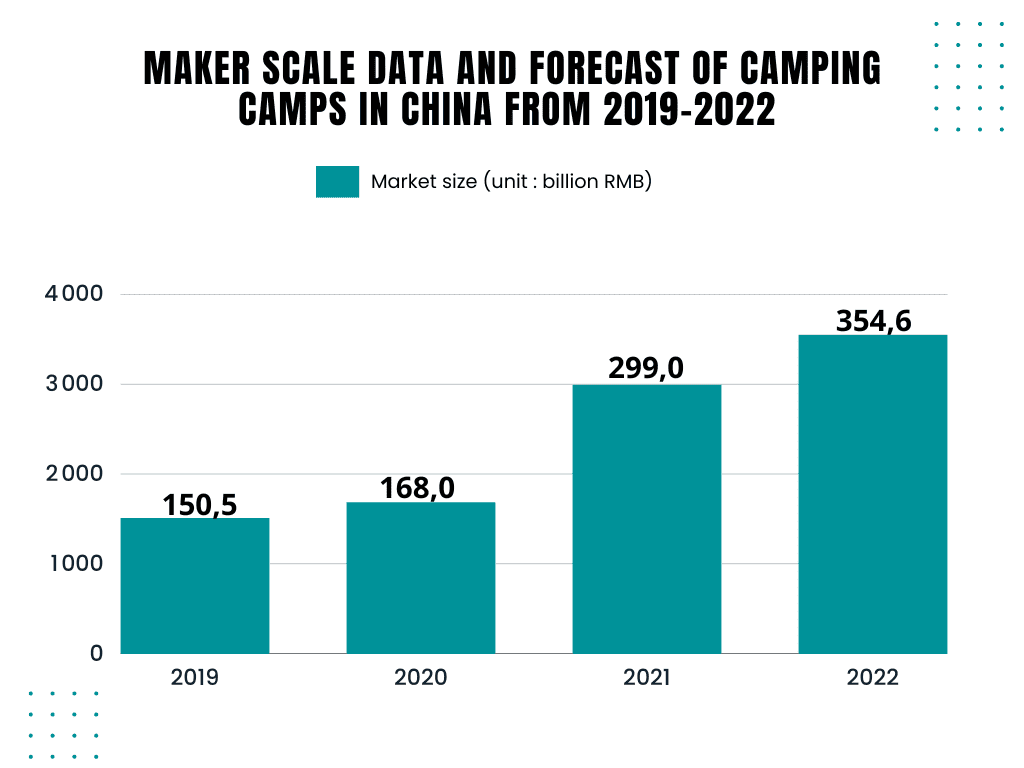
The Covid-19 crisis in China has caused a further decline in domestic tourism. According to the Ministry of Culture and Tourism, 160 million trips were made during the five-day Labor Day vacation.
This represents a 30.2% drop from the previous year. Even regions and provinces that were not affected by the April closures saw their travel opportunities limited. Long-distance travel was prohibited unless absolutely necessary.
Camping was an excellent option. On WeChat, it looked like friends were taking the COVID-19 test or camping outside during the Labor Day period.
The first day of Labor Day saw an unprecedented increase in “camping” searches via the Ctrip travel platform.
This was a 90% increase from the previous week. Similarly, on the ticketing site LY.com, searches for “camping” increased by 117%.

Although the “Year of Camping,” which was supposed to take place in 2020, is two years old, tents and glamping remain popular.
Covid-19 helped the market boom
China’s 2020 Covid-19 outbreak sparked the camping craze. Vacations were a compromise as international travel was difficult and domestic travel was limited. Camping is a great way to satisfy social distancing rules while enjoying nature.
Camping became more common and people started sharing photos of it on social media. The number of camping-related posts on Xiaohongshu increased fivefold in 2021. Many young urbanites use camping to meet new people.
The 2021 “Gen Z and Camping Community” report, jointly published by Soul and Taobao, found that 78% of those surveyed after 95 years old thought camping was a good way to form lasting relationships. It is also pet-friendly and fits in with China’s booming pet industry.
Users can find glamping inspiration on Xiaohongshu
According to Xiana Chin (senior marketing manager at ChatLabs), camping meets Generation Z’s need for a balanced lifestyle; “Camping is an escape from the noise and hustle of daily life and provides a way to find relaxation and calm, the so-called ‘return to normal life.”
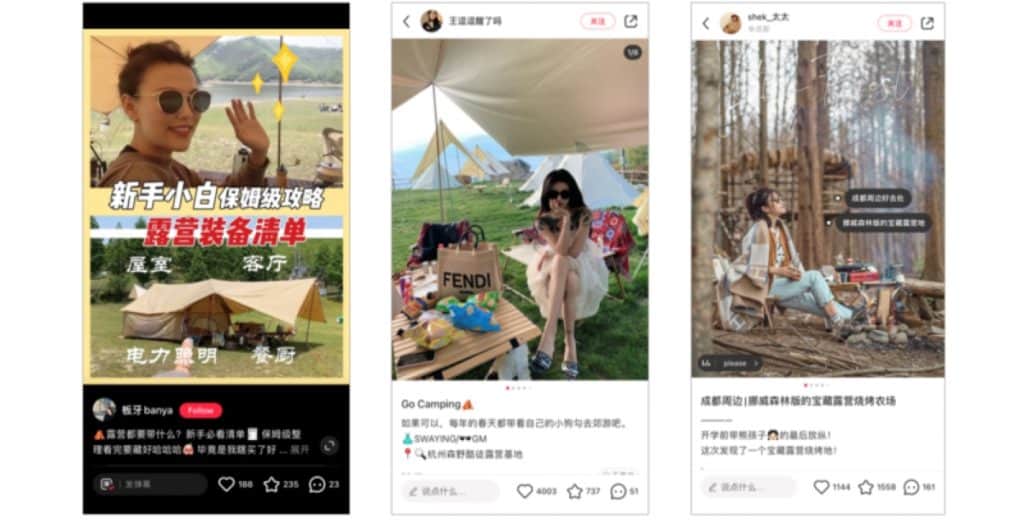
The average Chinese camper was spending 6,995.3 RMB ($1038 US) on glamping in 2022. This has created a variety of business models that allow for integration with other hot industries such as coffee, cinema, and LARP.
Tianyancha, which tracks business registrations, reports that there were 56,000 camping-related businesses in China in May. Nearly 70 percent of these businesses were established after 2020.
What’s the future of camping in China?
It’s clear that camping has brought hope to China’s stagnant tourism sector. According to Tech.China.com, it was Ctrip, China’s largest online travel agency, that promoted camping and launched its camping-themed travel recommendations. It covered 120 cities in 28 Chinese provinces.
In an effort to make up for losses due to the pandemic, hard-hit hotels also took advantage of the trend. Luxury hotels such as Shangri La and Le Meridien offered a camping experience at a fraction of the price. This appealed to tourists in cities like Sanya and Hainan.
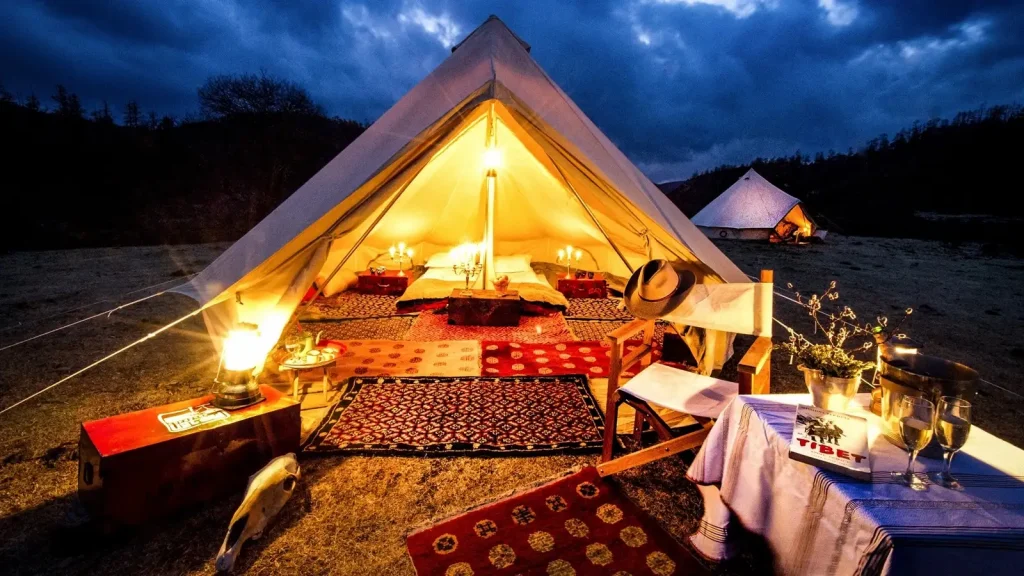
Outdoor brands and especially profitable players are the main beneficiaries. The outdoor clothing and equipment market has grown in quantity and variety since camping became commonplace.
However, not all brands are the best choices. They need to focus on the social aspect of camping and allow for customization if they decide to enter the market. Outdoor brands need to offer both stylish and functional gear to embrace the growing glamping trend.
Stylish and functional amenities to embrace the growing glamping trend
It’s something some brands are already doing: Louis Vuitton’s 2054 men’s collection was inspired by the outdoors.
Its Monogram backpack trunks can transform into camping tents. Prada’s Outdoor collection combines gardening, coffee, and glamping to showcase its new offering.
Fendi created an indoor campsite at Shanghai’s IAPM mall. It included a yellow tent with the FF logo.
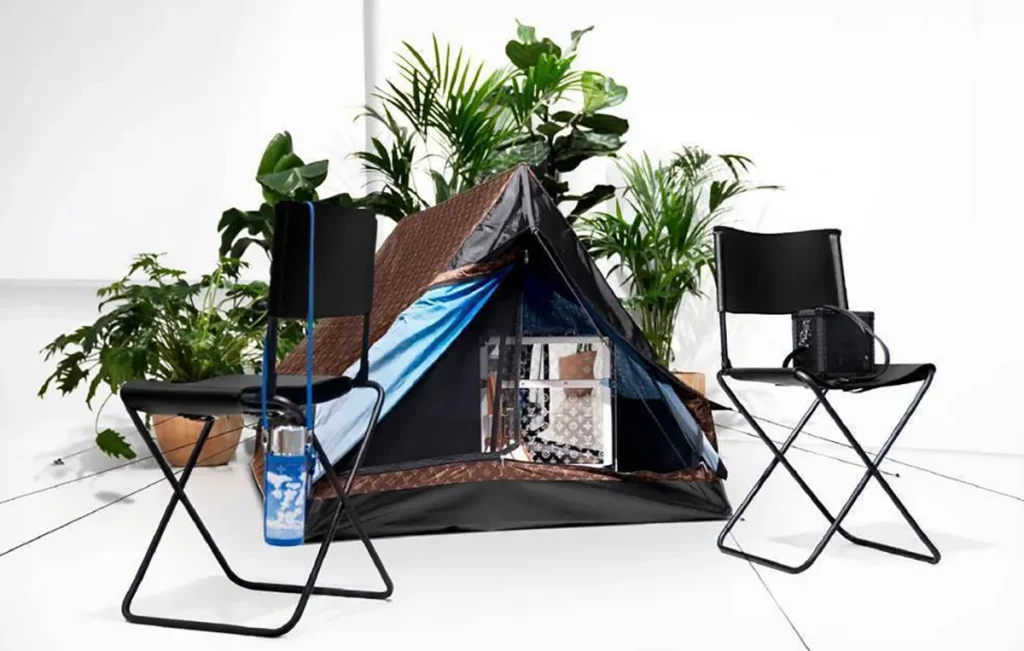
And it’s not over yet. Bosideng is China’s largest manufacturer of down clothing. Anakiki, an independent Chinese fashion brand, collaborated with him. The collaboration has resulted in a line of outdoor camping gear.
Is it too late to make a mark in the Chinese camping market?
Shanghai’s revival after months of closure could give the camping trend a new lease on life.
“I think the camping trend will not only survive but also thrive,” said Xiana Chin. She stayed in Shanghai for two months and was eager to travel outdoors.
According to Xiana Chin, camping not only compensates for the inability to travel abroad but also replaces months of lost social interaction.
Before Shanghai was cordoned off, Xuhui Riverside Park was a popular place for camping. The tents were so crowded every weekend that they looked like a wilderness campground.
The truth is that the Shanghai people did not refuse to camp. There are more than 1,000 posts about this place on Xiaohongshu.
The platform, although niche, is an indicator of taste. Back to the original question: Is it too late to allow new players to enter the camping market in China? Let’s let them stake their claim and see what happens.
Case studies on camping and glamping in China

In recent years, camping and glamping have become increasingly popular in China as a way for people to escape the hustle and bustle of city life and connect with nature. One company that has capitalized on this trend is the Beijing-based startup, Tujia Camping.
Tujia Camping offers a range of camping and glamping experiences across China, from luxury tents in scenic locations to more basic camping setups in national parks. The company has also developed a mobile app that allows customers to easily book and manage their camping trips.
One of the challenges that Tujia Camping has faced is the lack of infrastructure in many of the areas where they operate. This has required the company to invest in building its own facilities, such as toilets and showers, in order to provide a comfortable experience for its customers.
Despite these challenges, Tujia Camping has been successful in attracting a growing number of customers who are looking for unique and immersive outdoor experiences. The company has also been able to leverage its data and customer insights to improve its offerings and expand into new markets.
Overall, the case study of Tujia Camping in China demonstrates the potential for camping and glamping to become a major industry in the country, as more people seek out ways to escape the city and connect with nature.

We are your local partner in China!
China is a rapidly growing market for outdoor recreation and tourism, and there has been an increasing interest in camping and glamping among Chinese consumers in recent years.
With the country’s expanding middle class and rising disposable incomes, it is likely that the camping and glamping market in China will continue to grow in the coming years.
However, it is important to conduct thorough research and analysis before making any conclusions or investment decisions in this market.

We are a China-based marketing agency offering cost-effective solutions to foreign brands interested in tapping into the Chinese market. Our team of Chinese and foreign experts has the experience and know-how needed to succeed in this lucrative, yet complicated market.
Gentlemen Marketing Agency offers many digital marketing and e-commerce solutions, such as web design, e-commerce and social media marketing strategies, localization, market research, KOL marketing, and more.
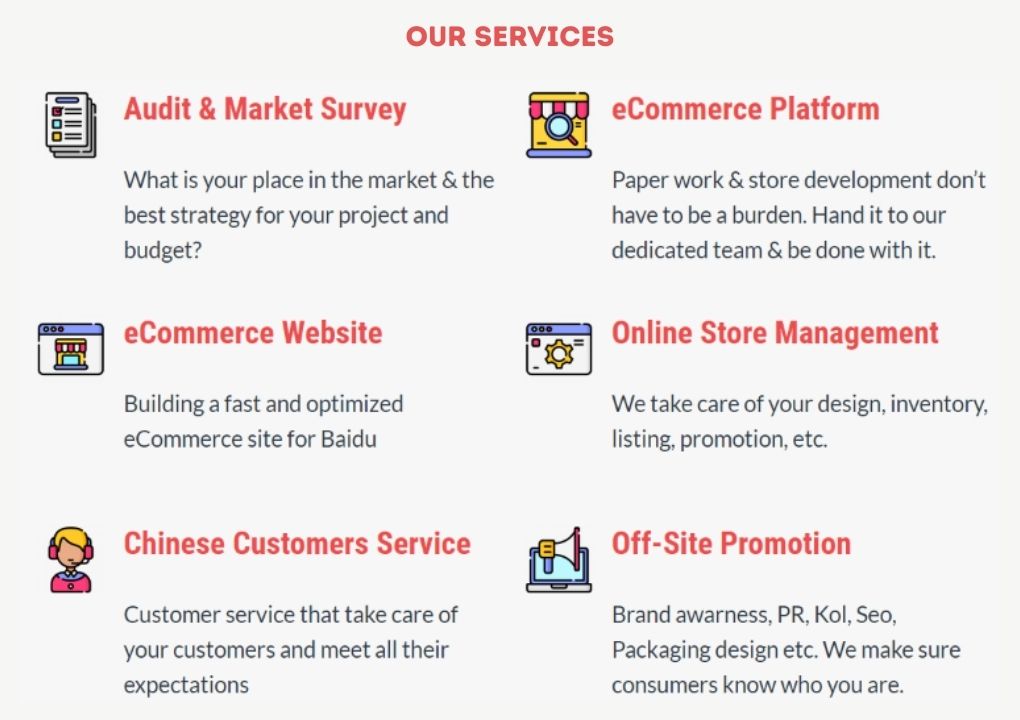
Don’t hesitate to leave us a comment or contact us, so that we can schedule a free consultation with one of our experts, that will learn about your brand and present you the best solutions for your China market strategy.
